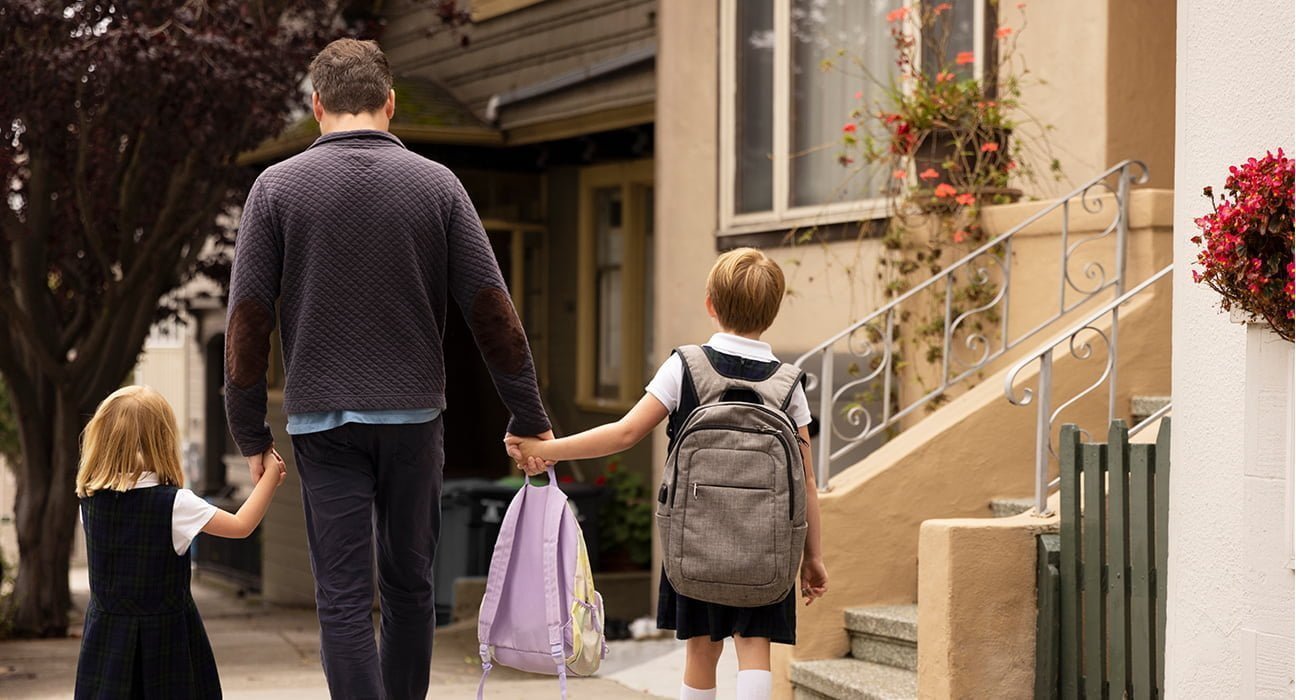In today’s time, every child wants to acquire modern education. Therefore is not uncommon for them to leave for hostels. Hostels have become a preferred choice among students seeking higher education and wider aspects Any parent’s child will always be young at heart, even if he or she grows up to be an adult. And if the child wants to study abroad or in any foreign land, the parents will be thrown into an environment of stress and worry. They will have several concerns about studying ranging from the high expenses to the unknown country and safety. In India, according to our tradition, parents make the final choice, hence they have an important impact on the choice of a pupil to study outside. This article will explore how the mental well-being of parents gets affected when their children depart to hostels for studies.
Emotions Felt by Parents
Parents experience a roller coaster of emotions when their children go to a foreign land for the purpose of opportunity and growth:
1) Sense of accomplishment:
Parents experience a sense of pride and accomplishment when their children take the next step toward education and progress. They feel satisfied as they witness this phase of their life toward independence and self-discovery.
2) Anxiety:
Parents feel anxiety regarding their children’s safety in a foreign land away from home. They have apprehensions regarding food, influences, new culture, and adjustment.
3) Fear of emotional distance:
Parents feel that they will lose touch with their kids since they are busy in their own lives and studies. Therefore, they prefer not to contact them continuously and only contact on certain times of the day.
4) Loneliness:
A person’s life is characterized largely as a caretaker, and enjoyment is derived from the position of parent, but when their child leaves for studies they experience abundance of feelings of isolation and loneliness. They experience a sense of loss, every time they remember them.
5) Hope:
As their kid enters this new phase of life, they are extremely hopeful for their better future and prospects. They have a feeling that hostel life will broaden their horizons, fosters decision-making skills, and provides a sense of independence to them.
Stress and Anxiety
1) Separation Anxiety:
Parents may experience separation anxiety as they are far away from their children. They have a fear that this distance will weaken their connection with them.
2) Communication gaps:
As children are usually busy in their lives. They do not have the time to interact much with their parents. This creates a communication gap among them, parents are every time stressed regarding their safety, about how their day went, and they are not able to take constant updates from them.
3) Adjustment:
Parents may find it extremely challenging as they step into this transformative phase of life. They have to learn to adjust without the physical presence of their children and their daily involvement in their life.
4) Emotional support:
Parents experience an ounce of stress and anxiety when they are not physically present to support their children in times of need or any difficulty.
5) Uncertainty of social life:
Parents are always skeptical about the social networking their children do. They are constantly worried about their peer groups and the choices they make in their life. They always want their children to have a good social life so that it enhances their productivity and life ahead.
Empty Nest Syndrome
The term “empty nest syndrome” refers to the sadness that many parents experience after their children leave home. This disorder is more frequent in women, who are more likely to have been the primary caregiver. If one of your children has gone out but you still have others living at home, prepare for the day when your nest will be empty of all children.
Both parents can suffer from empty nest syndrome, although moms appear to be more vulnerable. Many moms have spent 20 years or more of their lives raising their children and consider parenting to be their major responsibility. This is true even for the majority of working mothers. When the final child leaves home, the mother may believe that her most important task is complete. The mother, like anybody else who has been laid off, may feel useless, bewildered, and unsure of what her future holds. Most moms, though, adjust over time. According to psychologists, the effective shift from ‘mum’ to an independent woman may take between 18 months and two years.
Coping mechanisms for parents
There are various coping mechanisms for parents to manage Separation Anxiety:
1) Establish Open communication:
Regularly communicate with the child through various technological means such as video calls, chats, and messages. This helps to maintain proximity and involvement in their lives.
2) Keep a check:
Parents usually keep a check on the hostel facilities, children safety as well as academic support. This helps to ease the burden of the child.
3) Create packages:
By sending children to care packages with thoughtful items reminds the child of their home as well as the roots they belong to. This helps them to realize that they are being loved, cared and missed.
4) Plan visits:
To overcome separation anxiety, parents can arrange occasional visits to the hostels to spend some quality time with their children. This helps the most to overcome stress and anxiety.
5) Acceptance:
As a parent, it is very important to realize that every child will have to leave the nest and comfort zones of their homes. It is the time that they grow, develop, and be independent in their lives now. Accept this fact and allow them to excel.
Story of Smita
“Both of my daughters opted to study abroad in the United States. Are my daughters content? I believe so. Am I content? Yes & No!
If my daughters are content, I should be as well. That is what the ‘Yes’ stands for, but the ‘No’ equally stands for the reality of the situation. You may argue that when children get older and become adults, it makes little difference where they reside. They will have their own lives, and parents will have to gradually withdraw from their everyday lives.
While this is a universal reality, there must be something more to consider while relocating to a foreign country. Their own nation grows distant to them as they adjust to their new country. It may seem natural and unavoidable, but it is true.”
Tips to emotionally prepare yourself!
- Give time to adjust: Be patient with yourself, and allow yourself to adjust in the absence of them.
- Stay connected: Talk to them regularly. But do not overdo this, as this might lead to worry and stress among children.
- Engage in self-care: Focus on your mental well-being and on all the activities that bring you joy and happiness.
- Increase your social network: Build new networks and support systems like friends, and family. Sharing your feelings with them reduces your stress and anxiety.
- Be optimistic: Focus on the positives such as opportunities for personal growth and self-discovery.
- Avoid excessive worry: Worrying comes in very handy and natural at this point. Instead, be your kid’s strength and empower them to take on every challenge in life.













Leave feedback about this